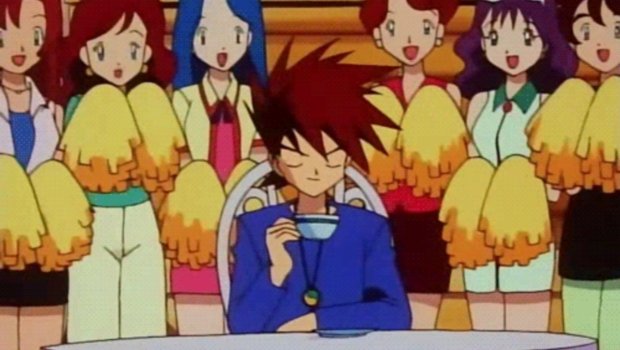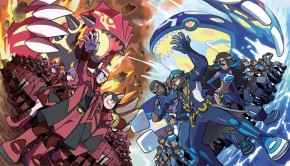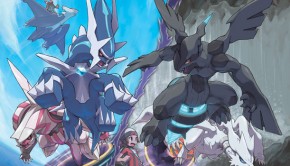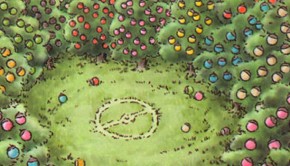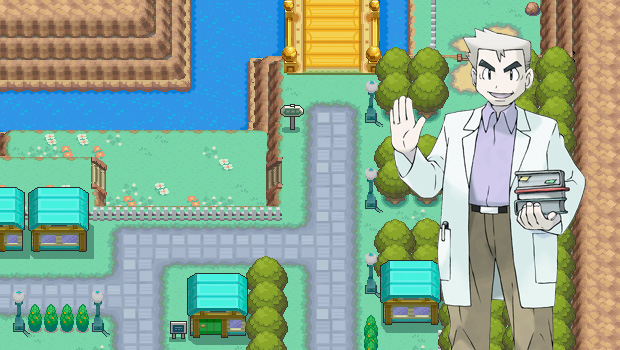The Psychology of Cooperation Vs. Competition in VGC
As Pokémon trainers, we all have rivals, and we all have friends. There’s a time where Pokémon is a fun kid’s game to share with those we love, and there’s a time we’d step over our sworn brothers and sisters just to get a better record. And when each tournament can have only one winner, where do we draw the line? At what point do people stop being friends, and start becoming obstacles?
We’ve all faced this decision. A train of thought such as “I sure like Sam a lot, but I came here to win,” is just as common a logic as “Oh, well I wasn’t going to win anyway, so I guess I’ll lose to Blake and improve his ranking with the hope of him making top cut.” From a psychology perspective, there are a number of answers to why our brain works like this, and just how our brain decides when we draw the line.
Present stakes
One of the first things our brain considers when deciding which instinct to use – friend or foe – is what exactly is at stake in the current match.
Let me exemplify, for starters, “Ranks and Rivals: A Theory of Competition,” a 2006 article by Stephen Garcia, Avishalom Tor, and Richard Gonzalez. These three presented their subjects with scenarios in which someone was fighting to become a well known philanthropist, rock star, poker player, or business executive, and in each scenario they had a clear rival. Then, they were given different rankings of how close they were to a noticeable standard – closer to the top or bottom of their respective chain of command, placings in a tournament, or popularity. Finally, each was given the option to work competitively and improve marginally, or work cooperatively with the rival and improve drastically, at the expense of their rival improving more. For example, the poker players were given a choice of working with their rivals and increasing their monetary winnings by 10%, with the rival increasing monetary winnings by 25%, or working alone and increasing both the rival and personal winnings by 5%.
What these researchers found, however, was that the closer someone was to a noticeable standard (such as second from the top or second from the bottom), the more likely the person was to choose the competition option over the cooperation option. Someone closer to winning the whole poker tournament would go for the gold, and someone who was next to last would want to redeem themselves somewhat – but those in the middle were more likely to cooperate with the rival and increase their own winnings at the cost of helping the rival.
Look back on your Pokémon career and the times you’ve had to battle friends. Starting with 2012 Regionals, we’ve had to play a lot of Swiss – and many if not all tournaments had at least one person intentionally lose so that their friend could place better. Players have done in sort of “the enemy of my enemy is my friend” logic, and they’ve also done it with close friends that somehow have a higher ranking, such as a 4-3 record having to play a 3-4 due to odd numbering. When have you scooped, and when have you gone for the kill?
From memory, I can recall days where I was pretty much set to end in the middle of the pack, and I would sometimes throw a match to a nice guy that seemed to care more about the game than I did that day. But any day where I thought I could’ve won, or any day where I was so close to the bottom that it was vividly embarrassing, I would play to win no matter how much I liked the person.
Perceived likelihood of winning
But it’s not just a matter of how we’re doing on a given day. Our own self confidence in our ability to win plays a crucial role in how competitive we get.
Allen Fox, a psychologist and former Davis Cup tennis player, wrote a book on competitive drive in 2005 called The Winner’s Mind. In his book, he stated, “Unconscious fear of failure saps the will to win by distorting perceptions and causing competitors to hesitate to compete, procrastinate, lie to themselves, blame others, fail to finish tasks, and panic on the verge of victory.” He also had several theories about those with more aggressive personalities having more of a likelihood of initial success, though he gave self-help tips for those who didn’t enjoy fighting for what they want.
Now think back to players you know. How often have you seen a player who typically doesn’t do that well, and often likes to joke around at tournaments more than take it seriously? How often have you seen a player that make all sorts of excuses for losses, but rarely actually accomplish much? How often have you seen players that get discouraged and stop along the way? In many, though not all, cases we have an easy time identifying nicer players as the ones that aren’t that good. By the same token (in many but not all cases) we can think of a few arrogant players who get results. While not set in stone, the cooperative mindset, or any casual mindset for that matter, becomes more common in players that don’t realistically believe they’re going to win anyway.
To stop there, though, would be facile; we mustn’t assume any player who’s willing to work with us is suffering from low self esteem, devaluing oneself to believe that’s the only useful way to participate. Fox also writes that some of this mindset to deviate from competition has to do with our pattern recognition; those extremely sensitive to actions that succeed or fail will more likely keep trying to compete. In other words, those that lose and think, “I lost because of hax,” or “I lost because I can’t beat that girl,” are more likely to be less competitive those who lose and think, “I lost because I didn’t predict well, but now I know,” or “I lost because I didn’t EV Thundurus to survive enough hits to be useful – next time I’ll run Bold with 252 Defense.” Coincidentally, those that think this way are also more likely to win in the long run, since their perceived ability to win keeps them active and, subsequently, constantly progressing. But for more casual players, sometimes they don’t compete as often simply because they don’t look at the big picture the same way others do – it’s not always a matter of belittling oneself as it is a matter of believing you’ve done all you can do, and learned all there is to know.
Past associations and experiences from other games
Enough of these six year old sources – let’s get some more recent information. David R. Ewoldsen et al. published a study in May of this year called “Effect of Playing Violent Video Games Cooperatively or Competitively on Subsequent Cooperative Behavior,” and one of his big goals was to prove it wasn’t violence in a video game that made a player more aggressive in other aspects of life; what they proved, instead, was that the balance of cooperation versus competition in past experiences influenced later actions, depending on how the player approached the game in previous playthroughs. In particular, they found that players who teamed up in the past, even in more violent games, showed higher likelihood of trusting another player or working together with that same player later on – though effects were not necessarily permanent.
Not only that, but Ewoldsen also noticed that players who started out playing cooperatively would later on show signs of rewarding other gamers for playing cooperatively and punish those that played competitively. In short, we build associations and a standard of how the game should be played from, well, playing the game. It’s kind of like how you can occasionally find older players who will tell you RBY was the best generation, or how you can find players that will complain about “this year’s metagame” every year, saying the previous year was better.
Reflecting on this study, one can simplify things down to this: old habits die hard. Those that learned the game in a more cooperative setting, something to do with friends or to make friends, will be inclined to continue working with players and hating competition, and those that were always out to make a name for themselves will play to win more often.
Conclusion
It’s amazing to think just how much of the way we approach the battle at hand will be influenced by past experiences, or our own perceptions of ourselves and the game itself. Next time you see a player taking the game too seriously, or perhaps just running a troll team with no intent of a skilled, focused match, ask yourself: if you had their experiences and introspections, would you do the same thing? Maybe that player that you’ve never understood isn’t that different from you after all. At the end of the day, playing the game differently than others is what makes the game a game; that ability to choose, not just in terms of move selection or real life allies, is the sheer beauty that separates a game from other forms of entertainment.

